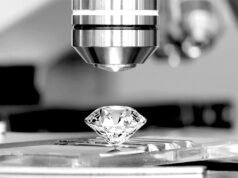There is an inherent conflict between the goal of weight loss and the goal of improving brain function. When people hit the gym or get on a diet to lose weight, they are usually thinking about how to feel better about themselves and their bodies. But as we know, if you want to improve your brain function, this requires a different roadmap.
Recently, I interviewed my friend and colleague, Dr. Alan Logan, on the Brain Diet. This interview covers many of the brain-related conditions and puzzles that I have tackled in my work on the science of memory and the mind.
My excellent buddy Dr. Alan Logan brought me a book I hadn’t heard of until a few weeks ago during a small research gathering in Toronto, Ontario.
“What is it, Alan…?” Is There a Brain Diet? “That doesn’t seem very appetizing.”
Dr Logan continued, amused, by telling me that I was getting an early preview at his new, soon-to-be-released book about how nutrition affects both brain and body health.
“JB, have a look at it. Perhaps you could send a quote for the back cover if you like it?”
I was ecstatic at this point for two reasons.
First and foremost, I’m interested in almost anything Dr. Logan has to say about nutrition.
Dr. Logan is a walking encyclopedia of information, having worked as a seasoned practitioner and a well-published scientific author.
He always has something interesting to say, whether it’s about how diet affects the gut, how it can change skin quality, or how it can effect stress and emotion, and I always learn something.
Sure, he’s a naturopath (and some naturopaths are a little strange), but Alan is extremely well-referenced, and his strength is spotting links between fields of study.
It never ceases to amaze me how he manages to cram valid scientific references from publications in psychology, neurophysiology, gastroenterology, endocrinology, microbiology, and nutrition into the same sentence.
The fact that I’d never been quoted on the back cover of a book was, of course, another cause for my excitement. That’s very cool in and of itself.
Before I could offer a quote, I had to like the book. So I spent the next week reading the book, taking notes, and thinking up questions to ask Dr Logan in the hopes of luring him into an interview.
Finally, here’s what I sent Dr. Logan for the back cover of the book:
“The Brain Diet contains some of the most effective ways for boosting not only brain health but also overall wellness. Dr. Logan’s book is a rare work that will provide you the tools to take control of your health – once and for all. It is packed with well-referenced scientific strategies and user-friendly, real-world nutrition suggestions.”
I meant every word I said. Seriously, this is one of the best books on the subject I’ve ever read, and as a special bonus, I’ve persuaded Dr. Logan to share some of his thoughts with you.
JB: Alright, Alan, I’d like to use this interview to break through some of the misinformation about diet, brain health, gut health, and other topics. Let’s dive right into some of the fundamentals of brain and body health. I always enjoy your mix of common sense, healthy caution, and genuine study support, so let’s get started.
For starters, I’d appreciate it if you could provide your overall ideas on how nutrition affects brain health with the readers.
Dr. Logan: Throughout life, a consistent supply of carbs, lipids, amino acids, vitamins and minerals, as well as dietary antioxidants, is critical for brain construction and function.
Your text will be rewritten by QuillBot. Start by typing or pasting something into this box, then hit the enter key.
We assume that these same nerve cells are responsible for intelligence, memory, motivation, movement, attention, and a variety of other functions. Despite the abundance of data on the effects of nutrition on behavior, mental and neurological health, and day-to-day mental edge, I find it surprising that the link is still overlooked.
JB: So, what would happen if some of these nutrients were out of balance? In other words, how does a poor diet affect the structure and function of the brain?
Dr. Logan: New study suggests that even little shortages in key nutrients, particularly omega-3 fatty acids, might affect IQ, behavior (including violent acts), attention, depression, and the long-term risk of cognitive illnesses like Alzheimer’s disease.
Clinical research employing fish oil and multivitamins in prisons in the United States and the United Kingdom have showed reduced acts of violence, improved test scores in those with learning disabilities, and improved mood ratings in those with depression.
According to a research published in the European Journal of Clinical Investigation in November 2005, taking fish oil supplements for one month enhanced cognitive functioning and mood ratings in otherwise healthy people when compared to an olive oil placebo.
Unfortunately, studies suggest that the folks who might benefit the most from supplementing are the ones who are least likely to take them. To put it another way, individuals that have the best background diets, exercise often, and have a lower BMI are the ones who are already supplementing.
JB: You highlight how a heart-healthy diet is also a brain-healthy diet in your book The Brain Diet. So, what’s the link between the two?
Logan, Dr.: Oxidative stress (free radical formation) and inflammation are two common threads in the promotion of heart disease and nerve cell damage. Oxidative stress and inflammation can be addressed with a heart-healthy diet containing fiber-rich whole grains, antioxidants, and essential fats.
It’s also true that maintaining healthy blood flow to the brain is essential for optimal brain function, therefore any diet that promotes this is ultimately beneficial to the brain. Antioxidants found in dark-colored fruits and vegetables protect blood vessel walls, while omega-3 essential fats and certain culinary herbs reduce inflammation, which is linked to heart disease. Maintaining cerebral blood flow enables for the supply of these same nutrients, which promote normal brain functioning and brain cell protection.
JB: Culinary herb study is one area of nutritional research that is extremely interesting but often overlooked. In your book, you do an excellent job of addressing them.
Can you give some instances of culinary herbs and what kind of brain and body health benefits they might have?
Dr. Logan: The two major men are ginger and turmeric, which have a lot of study behind them and are both effective antioxidants with anti-inflammatory qualities. In fact, human studies suggests that ginger has an anti-inflammatory impact in osteoarthritis. Both herbs have been demonstrated to have anti-anxiety and anti-depressant qualities in studies and to help people live longer.
I’m not arguing that ginger and turmeric are fountain of youth herbs, but including them in one’s diet may certainly be classified as beneficial. According to Tufts University researchers, cinnamon, oregano, thyme, and coriander have extremely high antioxidant potential.
JB: Let’s take a step back at this time. Before I get into some possibly contentious questions and themes, I’d like to learn a little more about your past. To put it another way, I want the readers to know that you’re trustworthy and that they should pay attention to you.
So, please tell them a little bit about yourself.
Logan, Dr.: I’m pleased you inquired since, as you mentioned, all naturopathic doctors are tarred with the same brush, and some NDs are well out in the pseudoscience outfield. Telling someone you’re a naturopath conjures up thoughts of a cloak with half moons and stars, as well as a crystal ball.
My CV reads: “Graduated magna cum laude from the State University of New York, where I completed my pre-med courses.” Four years of full-time study at the Canadian College of Naturopathic Medicine, including about 300 hours of nutrition classroom time and a significant portion of my 1200 clinical hours devoted to clinical nutrition.
But that wasn’t enough for me, so I’ve spent hours on nutrition continuing education, including Georgetown University’s wonderful Food as Medicine program.
Since then, I’ve worked with University of Toronto nutrition and mental health experts, and my work has appeared in journals such as Medical Hypotheses, Nutrition, Medical Clinics of North America, Nutrition, and the American Journal of Hypertension.
I recently joined the Harvard School of Continuing Medical Education faculty, where I lecture on placebos and nutritional supplements. Working with you, JB, has been a career highlight out of it all.
JB: Of course it has, hahahahahahahahahahahahahahahahahahahahahahahahaha
That is, nevertheless, a rather good resume. Next, I’d like you to wow me with some lightning-quick responses to some lightning-quick questions.
This is how it will operate. I’ll present you with a topic and ask you to answer in only a few sentences. Make them a collection of your most important opinions on each subject.
Ready?
Logan, Dr.: JB, Let’s get started… I’m all about vital thoughts.
J.B. : (Playing jeopardy theme song) The relevance of antioxidants in brain and bodily health is the first point to mention.
Logan, Dr.: Most chronic diseases have been linked to oxidative stress, or the creation of free radicals. In the brain and throughout the body, dietary antioxidants are the most critical line of cellular defense.
The impacts of free radical damage take a toll on cells without proper protection, and it can disrupt the production of energy in the small battery packs within cells known as mitochondria.
JB: It’s fantastic. How can we build an adequate feeding/supplement strategy to defend against oxidative damage now that we know how critical they are?
Logan, Dr.: We urgently want a strategy because the foods we require for protection are the ones we shun. Antioxidants are found in deep-colored fruits and vegetables as well as entire grains, but our vegetable diversity is limited to only four foods: onions, processed tomato, iceberg lettuce, and frozen potato. Furthermore, whole grains make up only 3.5 percent of our dietary grains.
A colorful array of plant foods and whole grains are the foundation of the strategy. Antioxidants that are isolated, such as vitamin E or vitamin C, are ineffective because antioxidants operate in concert. Dietary antioxidants (from food) or supplements of dried berries and green foods have been shown to be more effective in increasing blood antioxidant levels in studies. So, if you’re looking for antioxidant protection, stick to these.
JB: Let’s move on to the next topic, inflammation. Why is this such a brain-body issue?
Logan, Dr.: Chronic low-level inflammation has become a modern-day epidemic, linked to a wide range of chronic medical illnesses such as heart disease, diabetes, arthritis, neurological diseases, and even obesity.
The topic was recently featured on the cover of Time magazine, which was dubbed The Silent Killer. Chronic inflammation encourages the development of immunological compounds that can harm cells all throughout the body, including those in the brain, as well as the production of free radicals.
JB: So, how can we build a feeding/supplement strategy to reduce inflammation, similar to how we did with antioxidants?
Logan, Dr.: The same concepts apply since the same vibrantly colored fruits, veggies, and whole grains include plant-based compounds and fiber that can help to reduce inflammation. Certain herbs, such as ginger and turmeric, as well as green tea, are powerful anti-inflammatories, and omega-3 fatty acids are one of the most effective anti-inflammatory foods available. On a regular basis, include fish and seafood, as well as fish oil supplements.
JB: In your book, you talk a lot about fish oil and how it affects both the body and the mind. Do you want to share some of your favorite fish oil recipes with us?
Logan, Dr.: Here’s a quick rundown:
Benefits in heart health and arthritis are well documented.
It contains EPA, a powerful anti-inflammatory that is necessary for nerve cell communication within and across cells.
DHA, a structural component of nerve cells, is also found in fish oil.
Fish oil has been shown in clinical investigations to have a favorable effect on mood and behavior.
You might also be interested to hear that fish oil has recently been found to aid fat loss when exercising.
JB: All right, this one’s a doozy. What about contamination of fish oil? Is it really necessary to be concerned?
Logan, Dr.: This is a bigger issue with fresh fish than with supplements. Farmed salmon contains a lot of polychlorinated biphenyls (PCBs), while tuna contains a lot of mercury. Commercially accessible fish oil supplements have been found to be devoid of contaminants such as mercury, dioxins, and PCBs in independent investigations conducted by Harvard Medical School, Consumer Reports, and the watchdog group ConsumerLab.com. For a list of supplements that have been independently evaluated, I recommend going to www.nutrasource.ca.
JB: Are you ready for another hot topic? Let’s talk about detoxing. There are a lot of knuckleheads out there that are promoting cleansing as a panacea. Let’s be honest about detox. What is it, do we need it, and do I really need to smuggle coffee into my crotch?
Logan, Dr.: True, the word “detox” is on the cover of nearly every popular magazine these days, and it appears that everyone and their uncle has “the finest” detox strategy. Colonics are a waste of time and money, not to mention potentially harmful, so let’s keep the coffee for drinking. The truth is that our bodies have key physiological detoxification systems (mainly in the liver) that assist us remove environmental poisons. These systems, however, require nutritional support.
JB: So, what is your preferred method of detoxification? Is it true that I don’t have to fast for a week?
Dr. Logan: Fasting is really counterproductive because our main detox organ, the liver, requires key amino acids from protein (such as glycine, cysteine, and glutamine) to support detoxification pathways. We need everyday cleansing, not some type of spring cleaning with harsh herbal cures once a year, because the assault of man-made poisons in food, drink, and our environment never stops.
My favorite technique is to nutritionally boost liver detoxification by consuming high-quality protein (e.g. whey) that contains amino acids that make toxins more water soluble for bile evacuation. Antioxidants are also crucial since the liver’s detoxifying process can produce free radicals.
Furthermore, because many of our toxins end up in the gastrointestinal tract, dietary fiber (e.g. bran) can aid in their binding and evacuation. Live beneficial bacteria, such as those found in yogurt, can also aid in the transformation of harmful substances in the stomach and inhibit their absorption.
JB: All right, the hits are pouring in thick and fast. When it comes to gut health, there’s probably more weird information out there than there is on detoxification. And that’s difficult to believe. What exactly are we talking about when we say gut health, Alan?
Logan, Dr.: In this field, there are a lot of ridiculous myths and claims. Simply described, gut health refers to normal material transit via the GI tract, good nutrition absorption, and proper waste removal. Pain, bloating, constipation, and diarrhea are all symptoms of poor gut health.
JB: What are some of the ramifications of poor gastrointestinal health?
Logan, Dr.: Because of the acute and persistent symptoms that GI problems can produce, they can have a significant impact on one’s quality of life. Because bacteria in the GI tract can influence the same inflammatory immune molecules implicated in inflammation and mood, they can have a significant impact on GI function and general health.
According to research, bacteria in the gut have a broad influence, meaning they can influence inflammation in places other than the gut. Pain, mood, and even cognitive abnormalities have been linked to changes in the sort of bacteria that ordinarily exist in the gut.
Lack of physical activity can cause bacteria that normally reside in the large intestine to migrate up into the small intestine. The small intestine generally contains modest amounts of bacteria, and when there is an excess, there is bloating after eating and nutrient absorption issues.
JB: So, how can we come up with a feeding/supplement approach that will help us improve our GI function?
Dr. Logan: It’s that old chestnut again: fiber-rich fruits and vegetables, healthy grains, and low-fat yogurt with live active cultures as a chaser (beneficial bacteria such as Lactobacillus and Bifidobacteria).
Your text will be rewritten by QuillBot. Start by typing or pasting something into this box, then hit the enter key.
JB: In your book, you address soil depletion. Health professionals are constantly harping on this subject, but I’m curious as to how much depletion is actually occurring.
Dr. Logan: When comparing data from the last 25-50 years to data from the United States, Canada, and the United Kingdom, there is evidence of nutrient depletion within chosen produce. A wide range of vitamins and minerals, including vitamins A and C, niacin, riboflavin, thiamine, magnesium, iron, zinc, and copper, have been shown to be deficient.
JB: Is it true, therefore, that we don’t obtain enough nutrients from fruits and vegetables?
No, Dr. Logan! You may still live a long and healthy life because, as I explain in The Brain Diet, our fruits and vegetables are still high in the essential elements. All we have to do now is make sure we’re eating enough of them.
JB: What about organic fruits and vegetables; should we continue to use them? What if we can’t afford the increased costs?
Logan, Dr.: That is an excellent question. The decision to go organic or not should, in my opinion, be based on the risk of contamination. Not all produce is polluted with pesticides and herbicides, and paying a lot of money for fruits and vegetables that pose minimal risk makes little sense unless you have a lot of folding money.
In circumstances when conventional analogues are most contaminated, it would be smart to follow the advise of the Environmental Working Group and buy organic foods. This is a non-profit organization that analyzes contamination levels in food and regularly updates lists of the “most” and “least” polluted fruits and vegetables.
Strawberries are probably the most polluted fruit on the market nowadays, in my opinion. For a list, go to www.ewg.org and make decisions based on the information.
JB: That concludes the rapid-fire section of the interview — excellent work! But I do have a few more questions.
Although many experts address various foods, nutritional therapies, and supplements for GI dysfunction, inflammation, oxidative damage, and other issues, it can be difficult to determine which actions should be prioritized above others.
For example, the authors of one book I recently read listed over 150 different supplements, at least 20-30 for each ailment such as poor insulin management, chronic inflammation, poor arterial compliance, and so on. How should one prioritize, given that taking all 150 would be both impossible and undesirable?
Logan, Dr.: It’s crazy – there are now over 29,000 supplements and so-called natural goods accessible commercially. Prioritize by filling in the nutritional voids that exist in North America – a multivitamin-mineral as a nutritional insurance policy (Harvard School of Public Health recommends a multi for that reason), an antioxidant formula of dried green/colored plants (phytochemicals), fiber (we are typically 10g+ short of where we need to be), fish oil for our lack of omega-3 (we take in 130mg daily when expercising), fiber (we are typically 10g+ shy of
Supplements for specific conditions, as well as those that may assist build endurance and lean body mass, should be taken one at a time to see if they are beneficial.
Supplements for specific conditions, as well as those that may assist build endurance and lean body mass, should be taken one at a time to see if they are beneficial.
Dr Logan: 1000mg of fish oil (o3mega, Genuine Health), daily multivitamin-mineral (multi+ daily trim, Genuine Health) plus a little extra green tea to preserve my aged brain cells, and a probiotic (Align). That is all there is to it.
JB: You talk about the Japanese a lot in your book. Despite the fact that I believe Japanese women are among the most attractive in the world, there must be another explanation.
Dr. Logan: No, it’s only due to the fact that Japanese ladies are attractive. (Alan’s wife is Japanese, by the way.)
There are some secondary causes, to be sure. The Japanese are not just the world’s longest-living population, but they also live to a ripe old age. In comparison to North America, Japan has a substantially lower rate of chronic disorders, particularly brain-related conditions.
Scientists believe that some parts of the Japanese diet, such as fish and seafood, green tea, seaweed, fiber, moderate soy, and a colorful variety, may be protecting their brain cells. In addition, they consume less animal fat and sugar than humans do.
Unfortunately, chronic diseases (as well as brain problems) are on the rise in Japan. This rise is occurring in tandem with a shift to a Western diet that includes sweets, vegetable oils, and animal fat.
The changing Japanese diet has resulted in rapid increases in average height and weight (in just 30 years). Anyone who doubts the impact of nutrition on genetics merely needs to look to Japan.
JB: Muscle bulk and strength are important to many readers. This necessitates high-calorie diets, high testosterone levels, and a lot of workout (often including weight training, cardio work, and interval work).
Now, I understand that greater testosterone levels, chronic high-calorie meals, and chronic training stress are all likely to shorten our lives. So, in order to find a balance between huge muscles, lots of training, and ideal brain and body health (as well as lifespan), does the typical reader need to do anything extra in terms of nutrition and supplementation?
Logan, Dr.: True, JB, there may be some strikes there, but low testosterone levels, inactivity, and body fat (as opposed to lean body mass) have all been linked to cognitive decline and the likelihood of chronic disease.
Readers may have their cake and eat it, too, if they make an effort to include fruits and vegetables in their diets as much as possible, choose whole grains, fish and shellfish, and supplement wisely.
Keeping abdominal fat under control lowers the risk of most chronic diseases, especially neurological diseases. Huge tris, bis, and pecs, as well as a pot belly, do little to safeguard you from chronic illness.
Take in the extra calories you’ll need for your extreme workouts, and if you notice any belly weight gain, it’s time to lose it.
JB: All right, Alan, let’s call it a day. I’m not going to reveal all of your secrets in one interview.
Many thanks for taking the time to speak with me. Also, feel free to drop by at any moment to assist the readers in staying on track.
If you’re a coach or wish to be one…
It’s both an art and a science to coach clients, patients, friends, or family members through healthy food and lifestyle adjustments in a way that’s tailored to their individual body, tastes, and circumstances.
Consider the Level 1 Certification if you want to learn more about both.
Related Tags
This article broadly covered the following related topics:
- brain diet
- logan’s nutrition
- the brain diet
- logan’s nutrition information
- brain health diet



